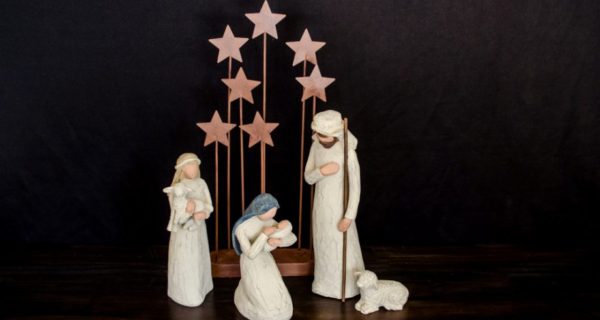A mantle white, a woman’s hand
On back of donkey in strange lands
She travels far on hard, dry earth
While she awaits her baby’s birth.
A gasp of pain, the woman starts
She knows it in her heart of hearts
The child now is on its way,
But where shall poor young mother lay?
Her husband runs, in haste, in need
Dashing up and down the village streets
But no rooms are left in any inn
For all must visit the land of their kin.
The woman moans, the man cries out,
A desperate plea for innkeeper’s help,
At last a place for them is found —
A small mean cavern in the ground.
Yet gratefully, their faces glow
Quickly to the stable they go
While woman’s labor pangs grow sharp,
God’s waiting angels tune their harps.
A final push, a thin, high wail,
Her baby is born, a princely male.
The angels burst into heavenly song,
Praising the Christ child for all the night long.

This is a moving poem in that it contrasts the realism of human birth (including the pain that accompanies it) with the supernatural reality of this “princely male” being brought forth into the world and heralded by angelic tunes. Whether or not Our Lady suffered the pains of child birth – there is a lot of theological speculating, with many believing that the Christ Child was born from her “as light through glass” – she certainly was not spared any other pain in life, and her ultimate sufferings were felt when watching her son suffering. So focusing on her trials and the hard elements of the Christmas narrative make for very realistic and also heartening meditation, in the sense that we can relate to an event so natural and yet so supernatural!